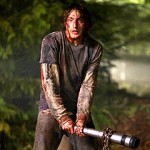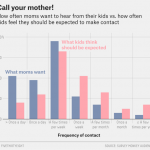I have excellent friends who know me very well. How do I know? This week, one of them sent me this video with the subject line: “For your prosthetic limbs beat.”
Presumably he sent it because I’m the kind of person who kept a NYT article on reawakening nerves to give better control over prostheses in my Quick Takes file for six months looking for a chance to slot it in.
The complexity of the upper limbs, though, is just part of the problem. While prosthetic leg technology has advanced rapidly in the past decade, prosthetic arms have been slow to catch up. Many amputees still use body-powered hooks. And the most common electronic arms, pioneered by the Soviet Union in the 1950s, have improved with lighter materials and microprocessors but are still difficult to control.
Upper limb amputees must also cope with the critical loss of sensation. Touch — the ability to differentiate baby skin from sandpaper or to calibrate between gripping a hammer and clasping a hand — no longer exists.
For all those reasons, nearly half of upper limb amputees choose not to use prostheses, functioning instead with one good arm. By contrast, almost all lower limb amputees use prosthetic legs.
Also sitting in that file was an article on Oscar Pistoris making a complaint that an opponent had used non-regulation prosthetics to win a race back in the Paralympics. Quoth Andy Miah:
If Oliveira’s prosthetic legs are bigger and better and legal, then Pistorius really ought to get some. If his body height precludes this and the only reason why Alan Fonteles Oliveira has longer blades is that he is taller, then Pistorius has been beaten by a more biologically privileged athlete. However, there might be an argument to divide athletes by height as well as disability – and this is something I’ve argued should be applied not just to Paralympic sport, but also the Olympics. In the same way that we separate athletes in weight divisions, height also has a huge impact on likely achievements
…The deeper issue underpinning this debate is what counts as a legitimate human within either Olympic and Paralympic sport. This is why the fall of Oscar Pistorius is more important than the fall of any other athlete before him, even Lance Armstrong. This is because Pistorius symbolizes the rise of the cyborg and the demise of the natural human. If his loss yesterday was fair, two conclusions are possible. Either, there are more like him coming and this will spark a tidal wave of change within Olympic and Paralympic sport, but, more broadly, in how society perceives ability. If his loss was unfair, then we may ask whether it is ok to transcend the normal human body and change people in a way that bears no resemblance to species typical norms.
Well, perhaps that’s enough of an unusual, niche hobbyhorse for the day. Shall I switch topics? How about a nifty feature on Shinichi Mochizuki’s possible proof of the ABC conjecture? [No math background needed to enjoy it].
Today, the math community faces a conundrum: the proof to a very important conjecture hangs in the air, yet nobody will touch it….This foundational stone is one that mathematicians are proud of. The community works together; they are not cut-throat or competitive. Colleagues check each other’s work, spending hours upon hours verifying that a peer got it right. This behavior is not just altruistic, but also necessary: unlike in medical science, where you know you’re right if the patient is cured, or in engineering, where the rocket either launches or it doesn’t, theoretical math, better known as “pure” math, has no physical, visible standard. It is entirely based on logic. To know you’re right means you need someone else, preferably many other people, to walk in your footsteps and confirm that every step was made on solid ground. A proof in a vacuum is no proof at all.
Even an incorrect proof is better than no proof, because if the ideas are novel, they may still be useful for other problems, or inspire another mathematician to figure out the right answer. So the most pressing question isn’t whether or not Mochizuki is right — the more important question is, will the math community fulfill their promise, step up to the plate and read the papers?
I’m in a lovely, spirit of mathematics mood, since I saw my fifth production of Arcadia this week. In one of the many excellent quotes, the tutor Septimus Hodge tells his pupil Thomasina not to mourn the Library of Alexandria:
We shed as we pick up, like travellers who must carry everything in their arms, and what we let fall will be picked up by those behind. The procession is very long and life is very short. We die on the march. But there is nothing outside the march so nothing can be lost to it. The missing plays of Sophocles will turn up piece by piece, or be written again in another language. Ancient cures for diseases will reveal themselves once more. Mathematical discoveries glimpsed and lost to view will have their time again. You do not suppose, my lady, that if all of Archimedes had been hiding in the great library of Alexandria, we would be at a loss for a corkscrew?
At a different point in the play, a lit professor in the present day agrees with Septimus that all scientific truths will reemerge, but he finds that property distateful:
A great poet is always timely. A great philosopher is an urgent need. There’s no rush for Isaac Newton. We were quite happy with Aristotle’s cosmos. Personally, I preferred it. Fifty-five crystal spheres geared to God’s crankshaft is my idea of a satisfying universe. I can’t think of anything more trivial than the speed of light.
Discuss amongst yourselves.
And let me introduce you to one more thing from mathematics — this time from game theory. A Schelling point is a solution that players in a game with no communication will choose, confident that their partner will match. For example, if you knew you were meeting a friend in New York City, but hadn’t specified where or when, where would you turn up? Most people all give the same answer: gur pybpx va Tenaq Prageny Fgngvba ng abba.
Turns out a good assumption about where to find me is the opening night of any production of Arcadia, as three friends found me in the balcony at the show.
Oh, and finally, over at the CFAR blog, I have two more posts up about the survey of rationality habits. First, a discussion of ways to welcome bad news, so you don’t cut yourself off from data.
Welcoming bad news as data can also help you have better, more honest relationships with friends and coworkers. If you thank people for information, even if it’s not the data you hoped for, you won’t be training your friends to present you with a skewed picture of the world. That doesn’t mean you have to cover up your instinctive disappointment, or pretend it isn’t there. Just remember that being upset about the way the world is is different from being upset about knowing that fact. And you need to know to be able to make a change.
There’s also a post up on the benefits of asking for and generating examples. I gave a personal example of giving examples to clear up confusion in the piece:
When I was talking to a friend about college classes that had made a big impact on me, I told him that taking Linear Algebra Theory had really improved my writing. He was confused, so he asked me for an example, and I explained that working through proofs each week and spending a couple hours mentally moving matrices had made it a lot easier to fall into the same mental pattern when writing essays and move arguments around in the paper. Before, it had been harder to keep the entire structure of a writing assignment in my head at once.
And finally, we’re taking applications for a one-day workshop on June 1st; a beta test for other, shorter workshops.
For more Quick Takes, visit Conversion Diary!













